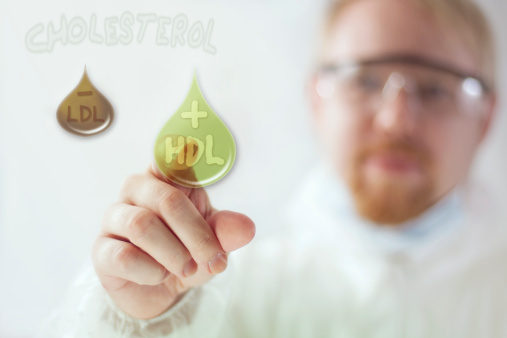 Does the term cholesterol confuse you? You’ve heard about how bad it is; then researchers discovered that some cholesterol is good for you and some of it is bad.
Does the term cholesterol confuse you? You’ve heard about how bad it is; then researchers discovered that some cholesterol is good for you and some of it is bad.
But then more researchers decided that cholesterol isn’t that bad— it is actually good for you!
Cholesterol is certainly confusing to say the least. Have professionals been wrong about cholesterol all this time?
No, they haven’t. As people gain knowledge, and a better understanding of how things work, they can ultimately make better decisions.The good news is that there is more work being done on this compound, so it can be better understood. But let’s not kid ourselves; a lot of widely-held perspectives on cholesterol aren’t exactly correct. So here is my best attempt to muddle through some cholesterol accuracies and assumptions. First off, cholesterol is produced in the body and it’s found in every cell. It’s essential for producing sex hormones and vitamin D.
In 1948, The National Heart Institute kicked off The Framingham Heart Study—a study on the causes of heart disease. It was discovered that cholesterol is abundant in plaque that lines the arteries of patients. The doctors concluded that cholesterol, formerly a positive, might be clogging things up and causing heart problems. Studies following Framingham concluded that dietary cholesterol was the culprit. However, more recent studies have shown that there is very little relation to the cholesterol from animal food sources, like eggs, seafood, and beef, and blood cholesterol levels. And because cholesterol is associated with saturated fat, it was vilified, too.
There are two types of cholesterol complexes you’ve probably heard of—high density lipoprotein (HDL) and low density lipoprotein (LDL). HDL is the “good” cholesterol and “LDL” is the “bad” cholesterol. Yes, saturated fats provide LDL cholesterol, but they are also a good source of HDL cholesterol. Having higher levels of HDL in your blood is a good thing because it detaches the plaque caused by bad LDLs.
Now here is where things get a little trickier: LDL cholesterol is not uniform, and there are different kinds of LDL. One is a dense, tight formation that builds up on arterial walls. The other is a loose, cloud-like formation that floats through the blood, and yet has no known negative impact on your health. The latter form of cholesterol is what’s found in saturated fats from animal sources.
It turns out…we’ve focused on the wrong thing as the source for bad cholesterol. When you walk down the grocery aisles, you may see a lot of refined foods: bread, cookies, cereal, and countless other sugary carbohydrates. These foods are staples in the “American Diet” and they also lower HDL cholesterol and create the dense, dangerous form of LDL that’s associated with many diseases.
There are people with low LDL cholesterol levels that get heart attacks and people with high LDL that don’t. Conversely, some people with low HDL are completely healthy… So what gives?
There are a number of factors that contribute to heart disease, and the jury is still out on why cholesterol impacts people in different ways. But what we do know is that you don’t have to be scared of saturated fats and cholesterol from animal food sources—especially if you’re not going overboard and are eating plenty of fruits and vegetables, too. The best way to prevent heart disease is to limit refined carbs and processed foods. And lastly—get active. The more inactive you are, the higher the probability other potential factors can influence your changes of heart disease.
So hopefully that clears up some of the confusion regarding cholesterol. It’s not necessarily the enemy you might think it is!
Also, read:
- 22 Effective Kitchen Herbs to Manage Cholesterol
- Should You Try Exercise to Lower Cholesterol Naturally?
- Dyslipidemia Symptoms, Causes, and Treatments
Sources for Today’s Article:
“Framingham Heart Study,” Framing Heart Study web site, https://www.framinghamheartstudy.org/.
CBC News, “The Cholesterol Question,” CBC web site, The Nature of Things, October 30, 2014; http://www.cbc.ca/natureofthings/episodes/the-cholesterol-question.
